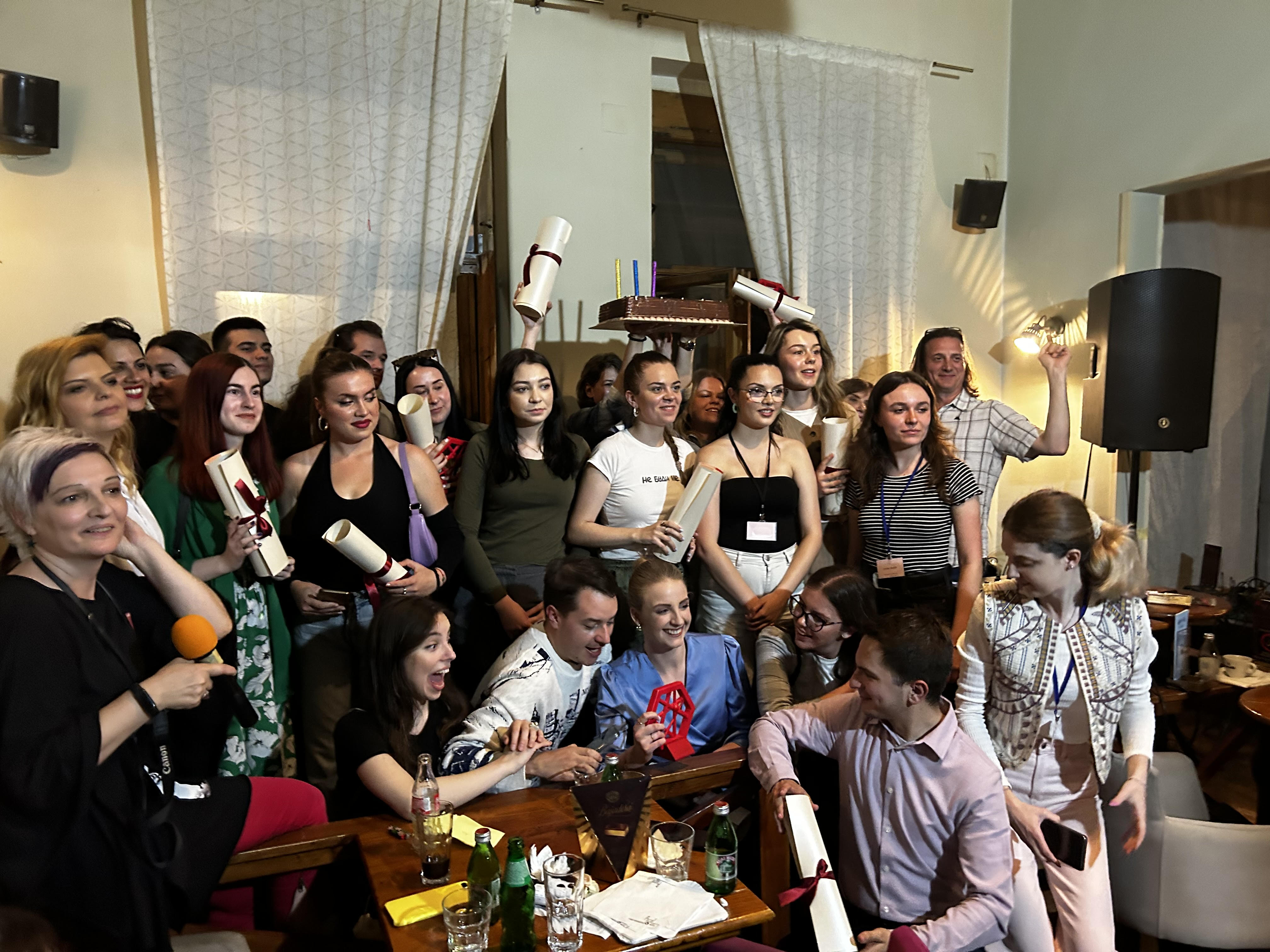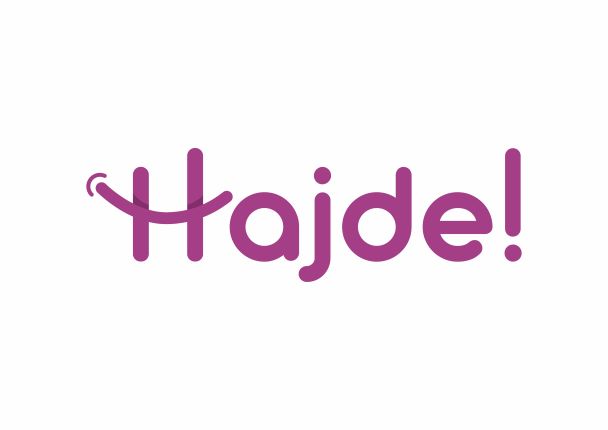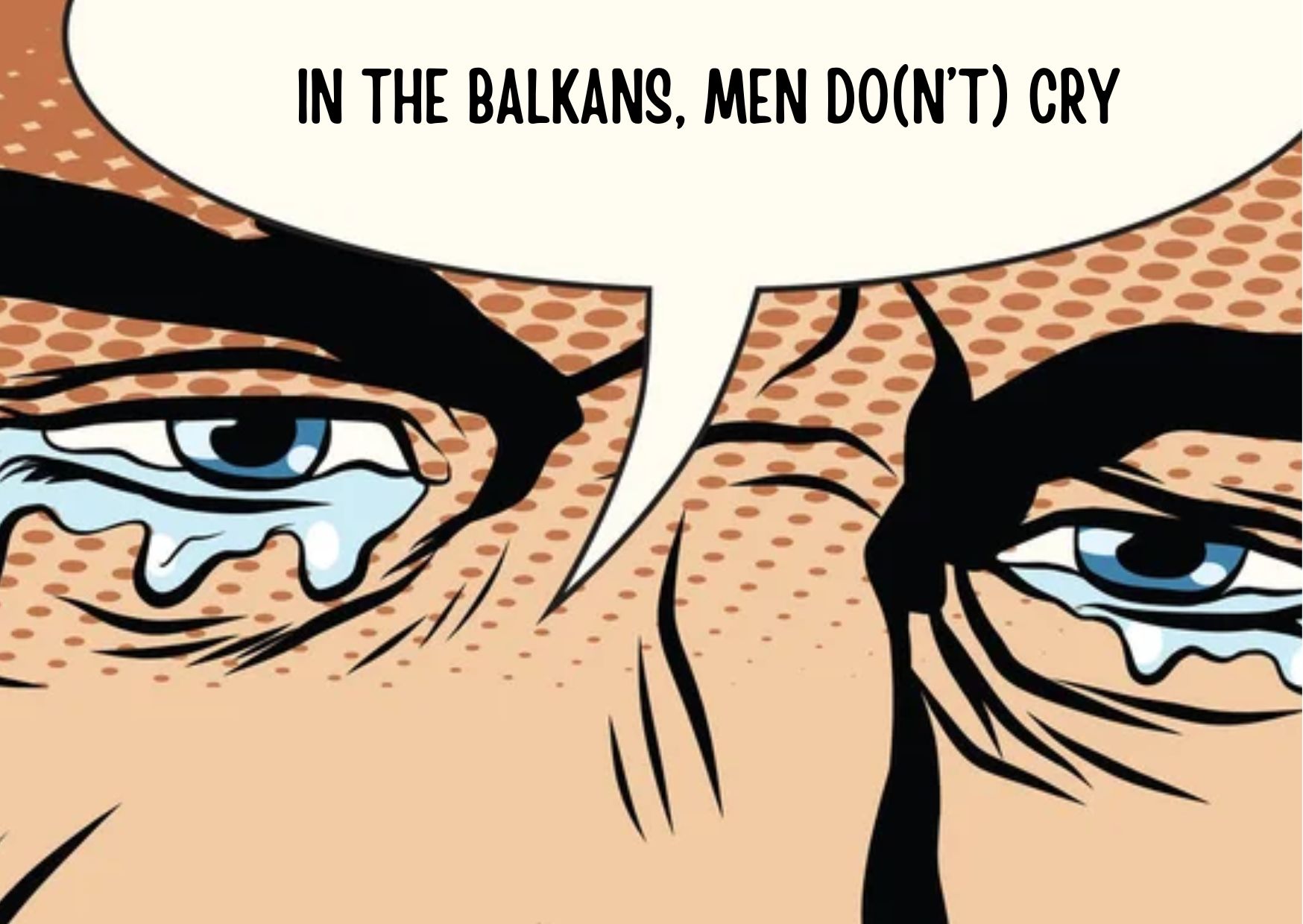Dragana Prodanović
Faculty of Philosophy, University of Novi Sad
The eighth edition of the International Festival for journalism students On the Record was held on the last weekend of May in Novi Sad. The goal of this festival, unique in Southeastern Europe, is to promote practical work at faculties within specialized journalistic subjects (print, radio, television, investigative and internet journalism), exchange experiences and connect journalism students and student media in the Balkans and Europe.

Over 60 applications were received for the festival competition this year: 35 television and 11 radio forms, as well as 18 written stories by students from eight universities in four countries: Serbia (Universities in Belgrade, Niš and Novi Sad), Bosnia and Herzegovina (Universities in Sarajevo, Tuzla and Banja Luka), Croatia (University of Zagreb) and Slovenia (University of Ljubljana). Thirty of them were selected for the short competition selection.
The support of the festival from the first day was given by numerous media professionals and media theorists who, in conversations with students during the festival in accompanying programs, opened up important questions and problems from the media sphere. They have always gladly accepted the invitation to evaluate the content made by future colleagues, encouraging them to be the ones who will defend its brighter colors, despite the infamous position that this profession has been occupying for many years. This year, the best works were decided by an expert jury consisting of Nadina Maličbegović (journalist, Al Jazeera Balkans, Sarajevo), Milica Kravić Aksamit (freelancer journalist, Novi Sad-Ljubljana) and Zoran Stajčić (editor and journalist of the Ravno do dna portal from Zagreb).
Former students of Journalism at the Faculty of Philosophy of the University of Novi Sad also contribute to the festival. Each edition of the festival is officially opened by one of the alumni whose professional work in the media we, as a Department of media studies, are proud of.
“In times when journalism is threatened, when from all sides they are trying to humiliate it and make it meaningless, ‘On the record’ restores hope that there are many young people who will oppose it and who will defend our profession in the future and fight for what is most important – and that is public interest”, said N1 Serbia journalist and alumnus of Faculty of Philosophy Mladen Savatović at the official opening of the On the Record Festival.
Awards are given in several categories, and one of them – for written journalism (print/online) – is called “Jan Briza”, established in memory of the prominent journalist and former teacher of the Department of Media Studies, the late Jan Briza, who incorporated his valuable knowledge and professional experience into numerous professional subjects of the Journalism study program.

Awards
In the press/online text category, “Jan Briza” award has been won by students Aleksandra Đukić and Midheta Hadžić from the Faculty of Philosophy in Tuzla for the article “Peer violence: a growing problem that no one takes seriously”. Second place was awarded to Nikolina Orešković and Darija Topić from the Faculty of Political Sciences in Zagreb for their article “Colleagues, you know how to pass the exam” and the story “Twenty-six – a number that students fear, but the law does not recognize” won the third place for Petra Stamenković and Lana Stanisavljević, students of the Faculty of Philosophy in Nis, Serbia.
Aleksandra Đukić said that they were both glad that the jury recognized the importance of the topic of peer violence and added that they felt particularly proud because, despite numerous obstacles during the production, they managed to present the seriousness of the topic. Midheta Hadžić said: “This is a tailwind and it should show the media the importance of this topic and how seriously they should be reporting on it.”
In the short radio form category, the following stories were awarded: “Menstrual taxes. Why is it time for changes?” by Teodore Ćulibrk and Valentina Simović from the Media Studies Department of the Faculty of Philosophy in Novi Sad took the third place, “People said I was a vampire” by Aleksandra Vukadinović and Mina Đukić from Faculty of Political Sciences in Belgrade was awarded the second place and radio package “Violence against women in the media” by Teodora Todorović and Marija Bulić, students of the Faculty of Philosophy in Novi Sad have won.
Teodora Todorović said: “Given the current situation and the fact that Serbia lost 19 women to domestic violence in the first five months of this year, I can only hope for change and this was our contribution in the fight for that change and for the rights of all women at all levels”.
In the short TV form category, video stories “Forgotten in society, lost in the system: the homeless in Zagreb” by Ena Qvarnstrom and Lucija Janušić, students of the Faculty of Political Sciences in Zagreb and journalists of Television Student and “How will the artificial intelligence affect educational process?” by Anastasija Jović and Rene Markič, students of the Faculty of Social Sciences in Ljubljana, took second and the third place, respectively. And first place was awarded to “Smart drugs” by Sara Dvorjak and Anja Ristić from the Faculty of Social Sciences in Ljubljana.
Anja Ristić said that it is a privilege to work and create great journalistic stories with someone as close as the two of them are, and Sara Dvorjak added: “This proves that if you do something with all your heart and believe in it, then it is surely the best work”.
In the investigative stories category The University of Zagreb was undisputed. They took all three places in following order: third place – Nikolina Orešković and Patricija Turkalj for “Children without adequate parental care”, second place – Goran Ivanović, Mihael Fitz and Lucija Janušić for their story about visually impaired student “Fulfilled Life”. Students Nina Čepo, Karin Sergo and Tajana Josipović were the most successful this year because in addition to the first prize, they also won the prestigious and often affectionately called the “sweetest” – the audience prize. With their story “The Road to the Voice”, a powerful story about a choir of people who sing without vocal cords, they made many students in the audience cry during the screening, and they said that they were especially moved by that. Karin said that this motivates them and that she is especially glad that they were so successful with a story that they came across quite by accident, but which became very dear and important to them. Tajana added that this is a great incentive for her to practice journalism and that the most important thing for them is that they “showed how much these people are actually fighters and how much we should all look up to them”. Nina finally concluded: “This is much more than just an award, it's important to tell the story and do it in an inspiring way and we had the privilege that everything was made the way we envisioned it. This is why I'm in journalism in the first place”.
Journalist and member of this year's jury Milica Kravić Aksamit said: “As a member of the jury, I had the task of looking at, listening to and reading the works from all four categories and choosing the three best ones in each of them. Of course, sometimes it was very easy because the best works were immediately noticed, whether because of the emotion they convey or because of a good and thorough approach to the topic, and sometimes I needed to go back to the students' works and try to choose the best. The last step for all of us on the jury is to coordinate our choices. Although there were completely opposite thoughts among us, I think that we agreed very easily and rewarded everyone who managed to amaze, surprise or touch at least one member of the jury with his story”. She added that she sincerely believes that students really represent the hope for professional journalism because the topics and approaches they have chosen were fresh and that she was especially happy to see that many of them nurture a feminist approach in choosing topics or approaches to the story, because she is particularly sensitive and proud of this topic and concluded: “After such engagements, without exception, I am always convinced that it makes the most sense to work with young people, because this is where all the resources for changing society for the better lie.”
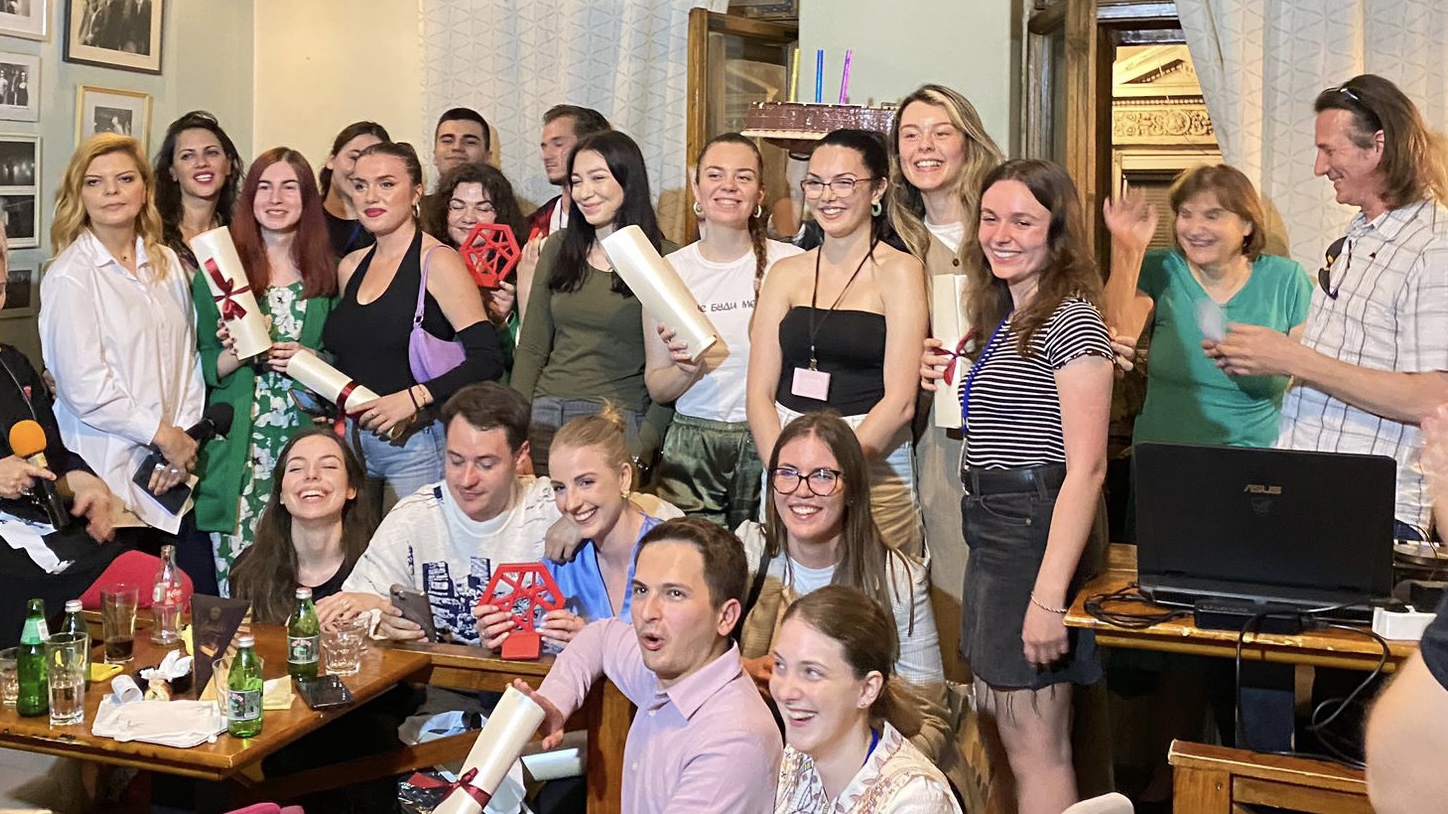
Before the award ceremony, the members of the jury participated in a round table discussion on the journalistic identity crisis moderated by Mladen Savatović, a journalist from N1 TV. In the crowded Radio Cafe, they analyzed what a being journalist today means, how journalism is becoming an industry that less and less manages to stay true to itself and in which ways is it possible to fight against this process.
Learning and connecting
During two days of the festival, students who participated had an opportunity to hear a lecture held by professor Lawrence Pintak from Washington State University about journalism education in the age of misinformation and another one held by professor Alessio Cornio from the University of Dublin who spoke about the declining level of trust in and increasing polarization among the media. He also dealt with the subject of corruption and through numerous researches and surveys showed the degree of crisis that journalism is experiencing and how in such a world journalists are increasingly seen as “servants of the regime and important figures”.
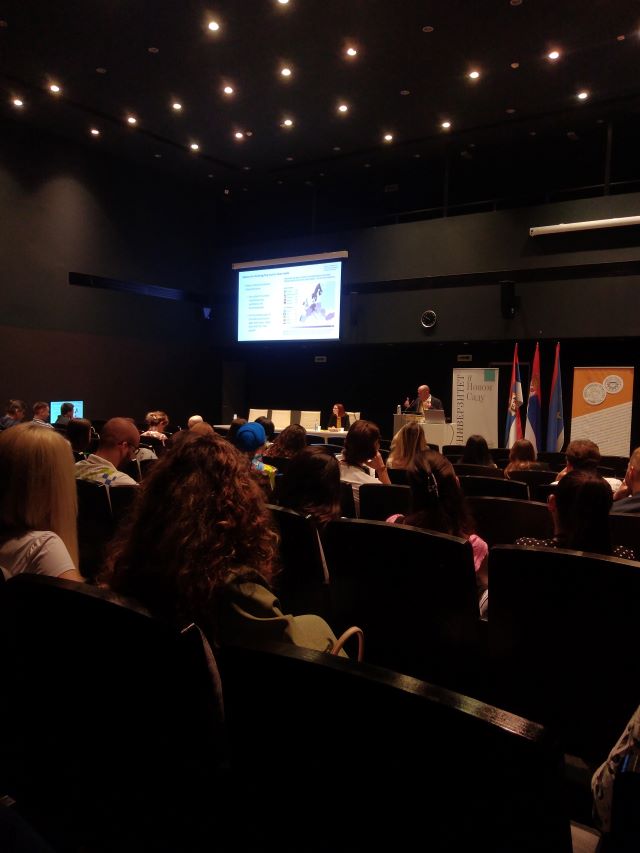
Students from four countries also participated in three workshops conducted by Nataša Kovačev, a journalist from TV EuroNews Serbia, on how to report from the field in crisis situations, Lisa Vananen Jones, a professor at Washington State University, on Solution journalism and how journalism can have a greater impact on society, and Vesna Radojević, a journalist from the KRIK portal, spoke about Data Journalism and the most successful methods of obtaining information in crisis situations. Students also held a joint meeting where opportunities for cooperation and networking of student media from the region were discussed.

Nataša Kovačev, a journalist from TV EuroNews Serbia who studied in the very first generation of students of journalism at the Department of Media Studies, this year was invited to share her experience and knowledge in reporting from crisis situations. She commended the organizers for recognizing the importance of this topic since journalists in the countries of the region often face challenging situations and added: “The students showed interest by actively participating in the discussion, sharing their views and asking questions about specific situations and dilemmas in the field, which made me very happy. These are the moments when you realize that the journalism profession has a future and that some new generations are coming who can correct the frequent intentional and unintentional mistakes of the current media, and restore their credibility and the trust of the audience”.

Keeping up the good work
Brankica Drašković, professor of the Faculty of Philosophy in Novi Sad and initiator of the On the Record Festival, said that the festival On the Record has been held since 2012, organized by students and teaching staff of the Department of Media Studies of the Faculty of Philosophy, University of Novi Sad. It was created as part of the “Bridges of Media Education” summer school, with which the Department began international cooperation with related faculties in the region in 2009 and added that: “In the past decade, On the Record has been a meeting place for hundreds of students, as well as their mentors, professors and assistants from 16 universities from Croatia, Hungary, Romania, Greece, Albania, Slovenia, Bosnia and Herzegovina, Montenegro, North Macedonia and Serbia. Many of them made connections at the festival and continued to collaborate in various international projects. One of those was the ‘Balkan Bridges’ project of the Faculty of Political Sciences of the University of Zagreb, within which we were guests in 2017 with the 5th edition of the On the Record festival in Zagreb”.
About the final evening of the On the Record Festival, where all the participants celebrated together Milica Kravić Aksamit said: “I had a strong sense of pride and was not only one, in fact it was shared by all those who were with me that evening as witnesses of the student meeting, those are my friends, also journalists and mostly former students of our Department. We all euphorically concluded that such festivals are of great importance because they not only bring immediate happiness and delight to young people from different countries, but without a doubt build a strong network of future professionals”.

Nataša Kovačev remembered her time as a student and said that almost twenty years ago, she did not have the opportunity to meet and connect with colleagues from other countries in this way. And then in 2012. she was invited to be part of the jury for the first edition of the Festival: “Back then, everything was new and interesting, and no one could have guessed that even ten years later, journalism students from all the countries of the region would still be happy to send their works and await the announcement of the awards in Novi Sad. I am glad that there are more and more of them every year and I hope that we will keep meeting them in Novi Sad at the end of May in the next ten years also”.
In the end, before guests headed to their homes, it was agreed that this Festival must indeed continue and keep giving these young people such a good opportunity for their work to cross borders even before completing their studies. "On the record" will continue to build bridges between people and professions.
